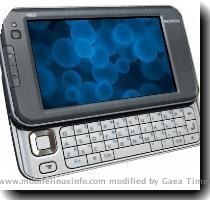Smart phones push Nokia Q1 net profit to euro349 million as sales grow 3 percent
By APThursday, April 22, 2010
Nokia posts euro349 million profit in Q1Nokia Q1
HELSINKI — Nokia Corp.’s first-quarter net profit surged to euro349 million ($467 million) from euro122 million a year earlier, with strong growth in smart phone sales and 3 percent growth in total revenue, the company said Thursday.
But its stock closed down more than 14 percent at euro9.63 ($12.85) in Helsinki as markets had expected a better performance, a more upbeat forecast and saw increased competition as hurting the world’s top cell phone maker.
Nokia reported net sales of euro9.5 billion in the January to March period compared with euro9.3 billion a year earlier, when sales plunged 27 percent in the middle of a recession.
The company conceded its rivals had a competitive edge.
“We continue to face tough competition with respect to the high end of our mobile device portfolio, as well as challenging market conditions on the infrastructure side,” Nokia CEO Olli-Pekka Kallasvuo said.
Its networks operations — Nokia Siemens Networks — continued to perform poorly, with sales falling nine percent in the quarter to euro2.7 billion.
Strategy Analytics market research firm said Nokia’s future profit guidance for handsets was weak and described the competition as “fierce” in the industry.
“There are signs that competition is increasing, not just in the high end but also at the low end, so Nokia is caught in a pincer movement with the Asians at the low end and the Americans at the high end,” Neil Mawston, from the London-based market research firm, said.
Nokia said handset sales grew 8 percent in the period, to euro6.7 billion, compared to 2009, but said it expects very little or no increase in the second quarter and no market share increase in the full year.
The Finland-based company maintained its forecast that the global mobile market will grow by some 10 percent this year as the industry emerges from a global downturn.
Nokia’s smart phone sales showed greatest growth, of 42 percent in Latin America and 30 percent in China, but continued to fall — by 27 percent — in its worst market, North America, where it faces stiff competition from RIM’s Blackberry, Apple’s iPhone and Google’s Android.
“Nokia has to fix the United States, and fix it fast,” Mawston said.
The company sold 2.7 million devices in the region, down 21 percent on the previous year.
In Europe, its main market, sales grew 7 percent compared to the same period last year but were down 30 percent on the last quarter of 2009.
Nokia said it sold 108 million handsets in the quarter, up 16 percent on 2009, with smart phone sales surging 57 percent to 21.5 million units. Its market share was 33 percent, up from 32 percent a year ago, but down from 35 percent in the last quarter of 2009.
Nokia, once the innovative leader in the mobile field, has recently been slow to catch on to market trends, from folding “clamshell” handsets to phones with sliding tops and touch screens.
“Its ability to react to changes in market trends has been really, really slow,” said Michael Schroeder, analyst at FIM Bank in Helsinki.
Nokia’s CFO Timo Ihamuotila concedes there are gaps in the company’s product range.
“It’s true that right now our portfolio lacks a truly popular device in the most expensive range,” Ihamuotila said.
Nokia said it has been hit by flight restrictions in Europe caused by the Icelandic volcanic ash cloud but said “the impact on our business is not quantifiable at this stage.”
However, it added that it was taking measures “to mitigate the impact … including adjusting our logistics operation to help ensure component availability and product deliveries to customers.”
It gave no details.
Nokia has been the top handset maker since 1998 and has gradually expanded to include online services, such as downloads of music, games, maps and the fast transfer of photos and video in a global online market it estimates will reach euro100 billion by 2010 with 300 million active users of its services.
In January, Nokia began providing free navigation services for users of its smart phones, hoping to double the number of GPS navigation users to 50 million worldwide.
Kallasvuo described the response to the navigation service as “tremendous,” saying that since the launch 10 million Nokia users have downloaded the service.
Nokia, based in Espoo near Helsinki, employs some 126,000 people worldwide.
____
On the Net:
Nokia: www.nokia.com.
Tags: Consumer Electronics, Europe, Finland, Helsinki, Products And Services, Western Europe






